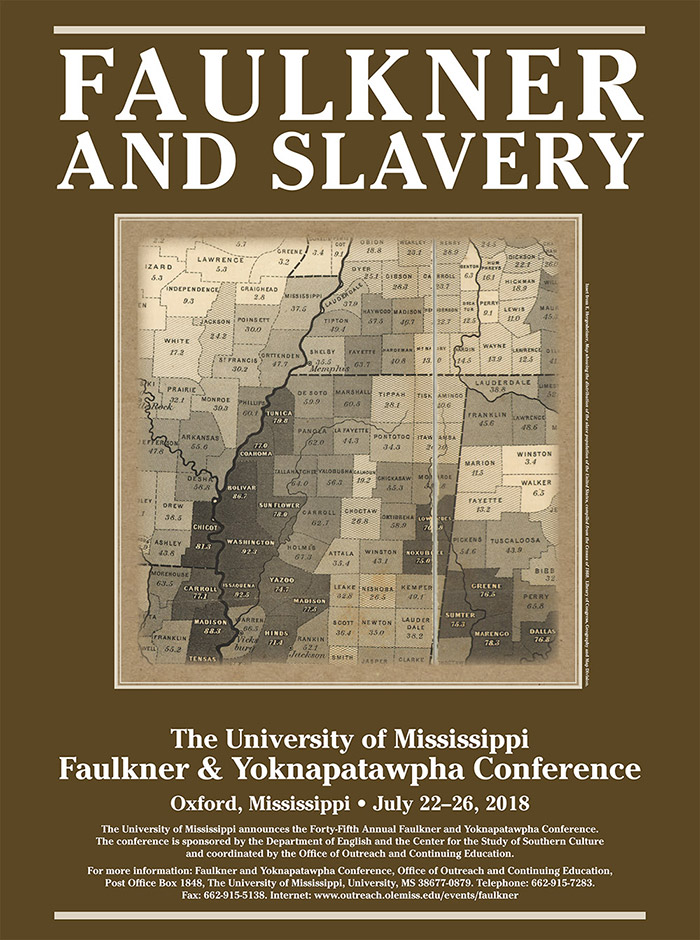
Slave Capitalism in Faulkner
Location
Nutt Auditorium
Start Date
23-7-2018 2:00 PM
Description
What might recent historical scholarship on the centrality of slavery to capitalism contribute to our understanding of Faulkner’s imaginative confrontation with the nation’s foundational crime? How does new attention particularly to the financial mechanisms and speculative mentalities that structured transatlantic slave capitalism give us richer contexts for appreciating the way cotton capitalism on the Mississippi frontier shaped careers like Thomas Sutpen’s? Faulkner’s writing on slavery mulls the commodification of human beings, but it also indicates the devices of credit, insurance, and speculation that multiplied their value as instruments of profit. Faulkner’s aesthetic bears witness to the toxic legacy of slavery in the forms of American capitalism. His fiction’s indulgence of time-sprung prose, of lapsed and yet elapsing event, of ludic narrative that defers conclusion rewrites the demands of financialized time and person that were embedded in a modern world made by slave capitalism.
Relational Format
Conference proceeding
Recommended Citation
Matthews, John T., "Slave Capitalism in Faulkner" (2018). Faulkner and Yoknapatawpha Conference. 11.
https://egrove.olemiss.edu/fy/2018/schedule/11
Slave Capitalism in Faulkner
Nutt Auditorium
What might recent historical scholarship on the centrality of slavery to capitalism contribute to our understanding of Faulkner’s imaginative confrontation with the nation’s foundational crime? How does new attention particularly to the financial mechanisms and speculative mentalities that structured transatlantic slave capitalism give us richer contexts for appreciating the way cotton capitalism on the Mississippi frontier shaped careers like Thomas Sutpen’s? Faulkner’s writing on slavery mulls the commodification of human beings, but it also indicates the devices of credit, insurance, and speculation that multiplied their value as instruments of profit. Faulkner’s aesthetic bears witness to the toxic legacy of slavery in the forms of American capitalism. His fiction’s indulgence of time-sprung prose, of lapsed and yet elapsing event, of ludic narrative that defers conclusion rewrites the demands of financialized time and person that were embedded in a modern world made by slave capitalism.

